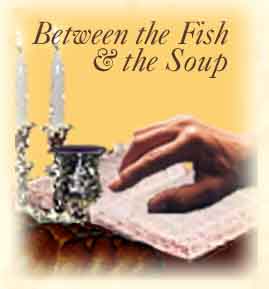

|
The men came in addition to the women…every wise-hearted woman spun with her hands; and they brought the spun yarn, the blue wool, the purple wool and the scarlet yarn and the linen… (35:22,25). The Mishkan (Tabernacle) was finally established on Rosh Chodesh Nissan (40:17). Rosh Chodesh is a happy religious event for women (Tur, Orach Chaim, 417). What is the connection between the two? The Tur Orach Chaim explains that when the twelve tribes sinned with the Golden Calf, the Festival of Rosh Chodesh - a symbol of the renewed Divine Presence in Israel, was taken from them and given to their womenfolk who had refused to participate. To the end the Malbim derives that the men had to persuade and actually force the women to part with their jewelry (based on his interpretation of 32:2-3). He points out that the reverse took place with the Mishkan where the women took the initiative in being the first of the contributors. The Baalei Tosofot on the above comments that the Mishkan, to which they contributed so generously to, was established on Rosh Chodesh. Accordingly the days of Rosh Chodesh became festive days for women. (Today there are many women’s monthly Rosh Chodesh events throughout the Jewish world.) Moreover, the Ramban interprets the words ‘in addition to the women’ as an indication that the women showed more enthusiasm than the men did in donating to the Mishkan. The women also gave of themselves by actually processing the raw materials before donating them: every wise-hearted woman spun with her hands… The Midrash (Tanhuma 5) explains that the building of the Mishkan was a sign that G-d had forgiven the Israelites for the Sin of the Golden Calf. The women were meritorious in three ways: they refused to take part in the worship of the Golden Calf, they were the first to contribute to the Mishkan, and they gave of themselves, as well as their property. Therefore Rosh Chodesh – the day when the Mishkan was finally established and G-d’s presence was on the way to be restored among the Israelites, was given to them… He made the copper laver and its copper base from the mirrors of the legions that massed at the entrance of the Tent of Meeting (38:8). Rashi quotes the famous explanation given by the Midrash Tanhuma (Pekudei 9) on the above Pasuk. This is that the copper laver was made exclusively of the sheets of copper that the women in those days used as mirrors. When the call went out for contributions for the Mishkan they donated their copper mirrors which they gathered at Moses’ dwelling that was then the Tent of Meeting (33:7). Moses was reluctant to accept such gifts for the Mishkan because they had been used to incite lust. However the Almighty told him that he was mistaken because these very same mirrors had been an essential element in the survival of the Israelites. In Egypt the men had come home at night exhausted from a long day of backbreaking labor, and the women had used their mirrors to help to entice them to continue normal family life. Therefore G-d said that the mirrors should be used in their entirety to make the copper laver. [As Ibn Ezra points out, every mirror had to go into it – he notes that for this reason the water holder is the only item in the Mishkan that did not have specific measurements.] Among other things its water would be used in the future to bring peace between husband and wife by proving the innocence of women accused of adultery (Numbers 5:17,28). The copper laver is also distinct in that it is the only item where it is stated what its metal was once used for – mirrors. In the context of the above explanation this is significant. As the mirrors were used to continue family life under most difficult conditions they can be seen as having had deep, personal, and sentimental value to their owners. This contrasted with the gold and silver the Israelites picked up on the way out of Egypt – valuable, but still mere commodities. It was one thing to give something for the Mishkan that was only recently obtained. It took generosity of a much greater order to part with something that was tied in with the deepest personal emotions. Thus the women who donated the mirrors (the word ‘tzoveot’ – legions - is used in the feminine) did not just donate objects, but they gave something of their very selves with those objects. For this reason then, the copper used in the copper laver is given special importance… This article is provided as part of Shema Yisrael Torah Network For information on subscriptions, archives, and http://www.shemayisrael.co.il Jerusalem, Israel 972-2-641-8801 |